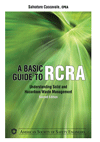CDC: U.S binge drinking a "dangerous and costly health problem"

 Binge drinking in the U.S. is a bigger problem than previously thought, according to the Centers for Disease Control and Prevention (CDC).
Binge drinking in the U.S. is a bigger problem than previously thought, according to the Centers for Disease Control and Prevention (CDC).
According to a report in the CDC's January Vital Signs, more than 38 million U.S. adults binge drink about four times a month, greatly increasing their chances of being involved in car crashes, violence or suicide. The CDC defines binge drinking for men as consuming five or more alcoholic drinks within a short period of time. For women the number is four or more drinks within a short period of time.
Excessive drinking, including binge drinking, causes 80,000 deaths a year and in 2006 alone cost the economy $223.5 billion.
From the report:
• Age group with most binge drinkers: 18-34 years
• Age group that binge drinks most often: 65+ years
• Income group with most binge drinkers: more than $75,000
• Income group that binge drinks the most often and drinks most per binge: less than $25,000
•Most alcohol-impaired drivers binge drink.
•Most people who binge drink are not alcohol dependent or alcoholics.
The CDC says that binge drinking costs U.S. citizens an average of $746 a person in health care expneses, crime and lost productivity. The problem also strains already-tight federal, state and local governments as well.
Drinking too much contributes to over 54 different injuries and diseases, including car crashes, violence, and sexually-transmitted diseases.
Additionally, the chance of getting sick and dying from alcohol problems increases significantly for those who binge drink more often and drink more when they do.
The report recommended steps to reduce binge drinking:
Governments should:
• Mount effective community strategies
• Track how many people binge drink, how often, and how much they drink when they binge
•Develop community coalitions that build partnerships among schools, community- and faith-based organizations, law enforcement, health care, and public health agencies to reduce binge drinking.
Health care providers should:
• Screen patients for binge drinking and advise those who do to reduce their use. More information can be found at www.uspreventiveservicestaskforce.org/uspstf/uspsdrin.htm.
The public should:
• Drink in moderation if they do drink.
• Support local control of the marketing and sale of alcohol.
• Support the minimum legal drinking age of 21.
The CDC offers a Community Guide with helpful information at: www.thecommunityguide.org/alcohol.
Looking for a reprint of this article?
From high-res PDFs to custom plaques, order your copy today!






